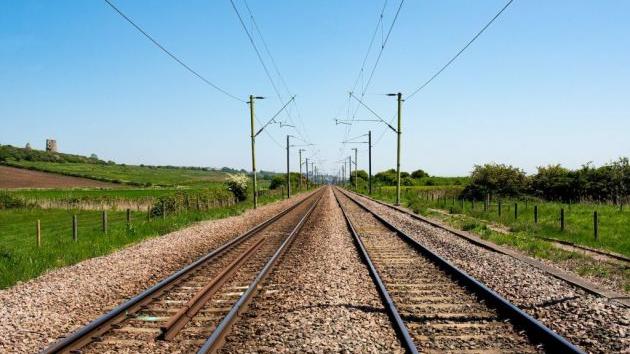Michael Schmidt, director of German Business Delegation to Serbia - Greater potential for exports to Germany than to Russia
 Thursday, 17.05.2012.
Thursday, 17.05.2012.
 16:20
16:20

It is still unknown whether Deutsche Bank will acquire a stake in Komercijalna Banka and where in Serbia the German market chain Lidl will open its markets. However, it is for certain that the economic cooperation between Serbia and Germany gets better every year. Germany is Serbia`s No.1 export market, while our country is Germany`s leading partner among CEFTA countries. As many as 12 new German investors came to Serbia in 2011. This year Muehlbauer and Falke arrived in Stara Pazova and Leskovac, respectively. ContiTech is expected to open a factory in Subotica, while Bosch should start the construction of a production facility in Pecinci this year and put it in operation in 2013.
An evidence that German companies are satisfied with their operations in Serbia is a poll conducted by the German-Serbian Business Association among its members. The results of that poll show that 91% of German companies that today operate in our country would choose Serbia again as an investment location.
In an interview with eKapija, Michael Schmidt, director of the German Business Delegation to Serbia and coordinator of the German-Serbian Business Association, speaks about the interest of German companies in investing in Serbia, potential for exports to Germany and the Serbian government`s measures that are necessary to improve the business environment.
eKapija: Serbia`s exports to Germany have been boosted over the last two years. Do you expect that trend to continue in 2012 as well?
- Germany has become Serbia`s greatest trade partner and biggest export market. Such result is in connection with the fact that the German economy is doing very good. We had a 3.6% growth in 2010, which is the best result in last 20 years, while the growth in 2011 reached 2.3%. When such big economy registers a growth, that immediately affects its surroundings. However, aside from a higher demand in Germany, a greater supply in Serbia is also a reason for larger exports. The number of export-oriented companies is constantly growing.

We strive to increase the value of Serbia`s exports to Germany to EUR 1 billion. It seems a lot, but it`s not when compared to other countries in central and eastern Europe. For example, Hungary`s exports are worth EUR 15 billion.
eKapija: In your opinion, does one of the reasons for boosted exports lie in the increasing number of German companies operating in Serbia?
- Of course, they contributed to larger exports. Five out of the top ten exporters are German companies that have secure deals with Germany. Other foreign companies that operate in Serbia are also responsible for the boost. For example, U.S. Steel was one of the biggest exporters to Germany.
Serbian companies should export more. It is very important that foreign companies get connected with the Serbian economy and find suppliers here, which would reduce imports. There are many foreign export-oriented companies in Serbia that procure components exclusively abroad.
eKapija: It seems that Germany has shifted the focus of exports from EU countries to some new markets, primarily China, Russia and USA. What are the best markets for Serbia?
- We should be realistic when it comes to exports and economic relations. Germany is Serbia`s No.1 export market, but Serbia ranks 60th on the list of Germany`s economic partners, with its exports accounting for 0.1 percent of Germany`s imports. There is a lot of untapped potential for export to Germany. Why would you tie up with China or Arabian countries when you can export to much closer countries, where you are guaranteed legal security. You cannot work with everybody. Serbia cannot export all around the world. Aside from food products, other products should also get a chance in the region. Serbia should be the center of the region and the best regional country in order to be able to compete in the European Union. Russia is a big and complicated market, where it is difficult to control logistics or collect payments. Cooperation with Germany offers greater opportunities because the German market, that is, the "EU market," is more diversified and offers more options, especially for small and medium-sized enterprises.
eKapija: Do you consider Serbia`s free trade agreements with Russia, Belarus and Turkey as an advantage? Does that make Serbia a more interesting investment destination?
- Such agreements can be beneficial, but it can hardly be the main reason for a company to invest in the country. Russia has such industrial policy that it closes the market to imports in order to attract more investments, for example, in the automotive industry. Russia as well has become a member of the World Trade Organization and established a cooperation with the EU. Taxes in that country are not that high any more, so that the advantage of investing in Serbia to export to Russia is not considered that big as it used to be. Once your country gets admitted to the EU, that agreement will cease to be valid.

eKapija: What are the main reasons why German companies invest in Serbia? Many investors cite cheap manpower in our country as the main reason.
- All companies, including German ones, are not interested in net salaries, but in gross salaries, which are not that small in Serbia. Before the elections, we spoke with the representatives of authorities about the reduction of social welfare expenditures and taxes. If welfare expenditures were to be cut, there would be a greater chance for increasing the salaries. Large expenditures primarily hit small companies. The state should collect taxes, but in a more efficient way. Instead of only raising the minimum wage in an administrative way, as it has been the case lately, which contributed to the unpredictability in the business environment, the best way to create secure, well-paid jobs in the industry would be to reduce taxes and welfare expenditures.
eKapija: Foreign investors in Serbia get incentives for hiring workers. Opinions about this government`s move are conflicting. What is the experience of German businessmen?
- That`s good if it is temporary and if all incentives are paid. There is no point in basing the economic development on incentives for some companies or certain branches of economy. The overal business environment should be improved. The future lies in the support to innovations and quality education.
eKapija: Do you expect the new government to ensure the continuity of economic development or to bring some changes?
- Much more than just a continuity is required. Serbia needs more initiatives, a long-term planning and accelerated reforms.
eKapija: The arrival of the German market chain Lidl in Serbia is already certain. This company is now negotiating the acquisition of land lots in several locations in Serbia.
- Yes, they have come too far with procedures in this market to withdraw now. We are in contact with them. I believe that Serbia is a very good territory for their operations.
eKapija: How do you comment on speculations that Deutsche Bank is going to buy Komercijalna Banka?
- I`ve heard that the International Monetary Fund (IMF) asks from Serbia to sell that bank. I have no detailed information. It is for sure that there are some contacts between these banks, but I don`t know how far that process has gone. The statements we`ve heard are quite general because the increased interest in the Serbian market can also mean that they are trying to enter into a new loan arrangement or help with eurobonds.

eKapija: The German-Serbian Business Association has recently got a new managing board. What are the first steps taken by the management?
- We are now having meetings more often than before. We have assigned tasks and responsibilities. What we are now trying to do is to connect directors with members of the Association in each branch of the economy. I give ideas and coordinate the activities, but the end result will depend exclusively on sector directors. The focus was earlier on the president, while now each segment depends on its own director. We will try to solve the problems of our members and to keep promoting Serbia and economic relations between Serbia and Germany.
GERMAN COMPANIES INVEST IN GEOTHERMAL ENERGY IN SERBIA
eKapija: There are more and companies that are interested in investing in renewable energy sources in Serbia. Are German investors interested?
- Very much. We are working on a project that will be part of the renewable energy promotion program. We will perform a market analysis for German companies, which will focus on the potential of renewable energy sources in Serbia. There will be a big presentation in late September for companies from both Serbia and Germany. It will be attended by German companies specialized in geothermal energy sources, which will seek partners in Serbia. In this area, NIS is interesting because it has many oil wells it does not use. The natural potential is particularly good in Vojvodina, and the use of geothermal sources quickly brings profits.
Suzana Obradovic
 AHK Srbija
AHK Srbija
 AHK Srbija
AHK Srbija
 Deutsche Bank AG Frankfurt am Main
Deutsche Bank AG Frankfurt am Main
 NLB Komercijalna banka AD Beograd
NLB Komercijalna banka AD Beograd
 Međunarodni monetarni fond - MMF Beograd
Međunarodni monetarni fond - MMF Beograd
 Lidl Srbija KD Nova Pazova
Lidl Srbija KD Nova Pazova
 Cefta Secretariat Brussels
Cefta Secretariat Brussels
 MUEHLBAUER d.o.o. Stara Pazova
MUEHLBAUER d.o.o. Stara Pazova
 Falke Serbia doo
Falke Serbia doo
 Contiental Subotica
Contiental Subotica
 Robert Bosch GmbH Gerlingen
Robert Bosch GmbH Gerlingen
 Robert Bosch d.o.o. Beograd
Robert Bosch d.o.o. Beograd
 Vlada Republike Srbije
Vlada Republike Srbije
 Železara Smederevo d.o.o.
Železara Smederevo d.o.o.
 NIS a.d. Novi Sad
NIS a.d. Novi Sad
 Koelnmesse GmbH Köln
Koelnmesse GmbH Köln
 Messe MĂĽnchen GmbH
Messe MĂĽnchen GmbH
 World Trade Organization Geneva
World Trade Organization Geneva
 StanTech d.o.o. Beograd
StanTech d.o.o. Beograd
Most Important News
06.04.2024. | Agriculture
Preconditions for Placement of Fresh Blueberries and Dried Plums in Chinese Market Secured

16.04.2024. | News
Jovan Ciric, Leasing Director Retail MPC Properties – MPC Echo symbolizes our desire for good ideas and innovative endeavors to spread freely and bring about positive changes

16.04.2024. | News
10.04.2024. | Finance, IT, Telecommunications, Tourism, Sports, Culture
Creative Industry – What This Serbian Economy Sector Worth EUR 2 Billion Encompasses

10.04.2024. | Finance, IT, Telecommunications, Tourism, Sports, Culture
23.04.2024. | Construction, Transport
Tender for first section of Belgrade-Nis fast railroad from Velika Plana to Paracin announced

23.04.2024. | Construction, Transport
16.04.2024. | News
Economy Fair in Mostar opens – 26 companies from Serbia exhibiting

16.04.2024. | News
22.04.2024. | Industry, Transport
Serbia to develop project of “flying taxis” for EXPO with Airbus – Signing of memorandum announced

22.04.2024. | Industry, Transport


 Izdanje Srbija
Izdanje Srbija Serbische Ausgabe
Serbische Ausgabe Izdanje BiH
Izdanje BiH Izdanje Crna Gora
Izdanje Crna Gora


 News
News






